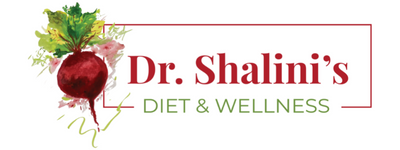Managing PCOS with a Healthy Diet
Polycystic ovary syndrome (PCOS) is one of the most common hormonal abnormalities in women of reproductive age. Women who suffer from PCOS produce higher levels of male hormones, leading to a hormonal imbalance in the body. This imbalance of hormones causes them to skip or delay their menstrual cycles and also makes it hard for them to conceive. Many women who suffer from PCOS also have hair growth on the face and body, or it can also lead to significant hair loss. Apart from these, if PCOS is not treated on time, then it may also contribute to long-term lifestyle diseases such as diabetes and heart disease.
Women suffering from PCOS grow small cysts on their ovaries, thus the name polycystic ovary syndrome. While the cysts themselves are usually not harmful, they lead to the hormone imbalance.
What happens in PCOS?
There are many different hormones that are present in our body, and each has their own function. Hormones are, simply put, chemical messengers that are responsible for triggering many of the different processes in the body such as growth and energy production.
In the case of PCOS, the hormones become out of balance. The change in one hormone triggers to a change in another hormone. For example, in PCOS the sex hormones get imbalanced. While normally the ovaries produce a tiny amount of the male sex hormones (androgens), in PCOS the ovaries start producing a bit more of androgens compared to what the body actually needs. This makes women stop ovulating, get acne, and also grow extra facial and body hair.
Due to the imbalance of hormones, the body may also start having a problem using insulin effectively. This condition is known as insulin resistance. When the body does not utilize insulin properly, the blood sugar levels shoot up. Over a period of time, this increases your risk of getting diabetes.
It’s not necessary that every women suffering from PCOS get insulin resistance and develops a higher risk for diabetes.
Causes of PCOS
The exact cause of PCOS is not understood completely, though most doctors believe that genetics is a likely factor. PCOS tends to run in families, so your chances of getting it become significantly higher if there are other women in the family suffering from PCOS or even diabetes.
PCOS and Weight Loss
Many women suffering from PCOS struggle with obesity. Obesity or weight gain is known to further complicate the symptoms of PCOS. PCOS also have an effect on the endocrine and metabolic systems, making it difficult for women to lose weight. At the same time, if a lady suffering from PCOS is able to shed weight and maintain it, inflammation reduces and sensitivity to insulin increases. Therefore, most doctors are of the opinion that if a woman is overweight, she should try losing some weight and maintain a healthy lifestyle to manage PCOS better.
As it becomes difficult to lose weight in PCOS, most doctors advise their patients to seek the help of a dietician who can prescribe an ideal PCOS diet for you to follow.
Diet Dos and Don’ts in PCOS
Modifying your lifestyle, maintaining a healthy weight, and indulging in regular exercising improves the body’s sensitivity to insulin, lowers your blood sugar, and also helps in normalizing hormone levels. Even if you lose just ten percent of your body weight, it will help you regulate your menstrual cycle. Let us take a look at what a PCOS diet should include and some general PCOS diet tips.
High-fiber foods can help you fight insulin resistance. These foods slow down the digestion process and also lower the impact of sugar on the blood. Some good options for high fiber foods include:
- Green leafy vegetables
- Cruciferous vegetables such as Brussels sprouts, cauliflower, and broccoli
- Beans and lentils
- Green and red peppers
- Pumpkins
- Sweet potatoes
- Berries and other fresh fruits (exclude high carbohydraye fruits)
Proteins sources such as chicken, tofu, eggs, paneer, cheese, yogurt and fish are healthy options for women suffering from PCOS.
A PCOS diet should also include foods that help reduce inflammation. These include:
- Almonds and walnuts
- Spinach and other dark green leafy vegetables
- Tomatoes
- Olive oil, Desi Ghee
- Strawberries , blueberries, cherries etc · Fatty fish that are high in omega-3 acids such as sardines and salmon
Coming to foods that you need to avoid if you have PCOS, refined carbs are known to increase inflammation, aggravate insulin resistance, and thus need to be avoided. Highly processed foods that you should avoid include:
- Muffins, Biscuits, cookies
- White potatoes
- Anything made with white flour ( maida) or refined flours
- White bread
- Breakfast pastries
- Sugary desserts
- Pasta noodles made from semolina or refined wheat flour
- Margarine
- French Fries
- Red or processed meats
As sugar is a simple carbohydrate, you should try to avoid it as much as possible. Make sure that you also look for the various names of sugar on food labels, such as high fructose corn syrup, sucrose, and also dextrose. Avoiding jaggery, honey and brown sugar is also advised. Soda and juices are also sources of hidden sugar.
Coping with the symptoms of PCOS may no doubt leave you feeling frustrated many times. However, taking the proactive steps to improve your health can give a boost to your mood and also reduce your symptoms. Create a ‘beneficial food’ list and a list of ‘foods to be had infrequently’ and follow it. Consult your dietitian to increase the number of food items you can have. Keep in mind that it is always best to consult your doctor before making any drastic changes to your diet and lifestyle.


